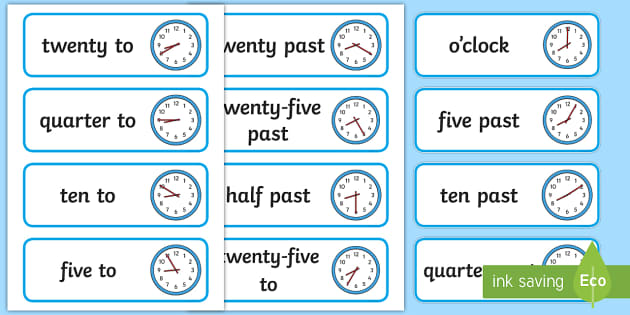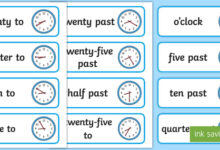2 Words Time: Understanding the Essence of Moments

2 Words Time is a concept that fascinates everyone. From philosophers to everyday people, the way we perceive and measure time has always been a source of curiosity and reflection. But what if we distill time into just two words? How powerful could a concept become when simplified to its essence? In this article, we explore the idea of “2 words time”, how it resonates in daily life, and why focusing on the simplest expressions can often teach us the most.
What “2 Words Time” Really Means
When we talk about “2 words time”, it’s not just a playful phrase. At its core, it reflects the beauty of simplicity. Time, as a concept, is overwhelmingly complex—seconds, minutes, hours, days, weeks, months, years… it never stops. Yet, sometimes, the simplest expressions capture the essence better than any lengthy explanation.
Think about how often two words can encapsulate a moment. Phrases like “time flies” or “lost time” immediately convey a complete idea. These phrases are succinct yet powerful. They remind us that time is not merely a measurement but an experience—a flowing entity that we either use wisely or let slip away unnoticed.
Another layer of 2 words time is its psychological impact. Humans are naturally drawn to brevity. Short expressions resonate faster, stay longer in memory, and can trigger reflection. Two words are enough to summarize an entire philosophy of life if chosen wisely, and in the case of time, they serve as mini reminders of life’s fleeting nature.
The Philosophy Behind Two Words

The idea of boiling a concept as grand as time into two words isn’t just poetic; it’s philosophical. Time has always been one of the great topics of human contemplation. From the ancient Greeks pondering chronos and kairos to modern thinkers analyzing productivity and mindfulness, time has been central to understanding existence.
By using 2 Words Time, we strip away all distractions and focus on the essence. For example, consider “wasted time”. Those two words carry regret, a warning, and a lesson all at once. In another context, “precious moments” evokes gratitude, awareness, and love. These simple pairings are like little philosophical nuggets that encourage us to think more deeply without overwhelming us with complex explanations.
Moreover, there’s something almost meditative about focusing on two words. It forces the mind to slow down and reflect. In a world obsessed with speed, having a simple expression to pause and think can be revolutionary. Two words about time can encapsulate lessons that might otherwise take paragraphs—or even books—to express.
How Two Words Change Our Perspective
Language shapes perception. When we reduce complex ideas to small phrases, our brain responds differently. That’s why 2 words time isn’t just about brevity—it’s about perspective. A two-word description of time can make us reconsider how we spend our hours, our priorities, and even our relationships.
Take, for instance, the phrase “now matters”. On the surface, it seems trivial. But if you pause and reflect, it’s a powerful reminder that only the present truly exists. Worrying about the past or obsessing over the future doesn’t change the reality of the present moment. Two words like this nudge us to live fully, to act with awareness, and to appreciate the fleeting nature of time.
Similarly, phrases like “time heals” or “time flies” have a subtle yet profound effect. They remind us of impermanence, growth, and change. In many ways, two words can deliver lessons that long essays might fail to instill. It’s the psychological equivalent of a mental jolt—a small nudge that can alter how we think and act.
The Role of Two Words in Daily Life
Interestingly, 2 words time isn’t just a philosophical or poetic concept—it’s deeply practical. In our fast-paced lives, small reminders often carry the most weight. Sticky notes, smartphone notifications, and even conversations are more effective when concise. Two words can fit anywhere, pop into your mind at the right moment, and change your behavior subtly but powerfully.
For example, someone might carry a small card that says “use wisely”. That simple two-word instruction can influence how they approach each day. Time is the most democratic resource—we all get the same 24 hours—but how we use it differs widely. By summarizing priorities in two words, we create mental signposts that guide our actions.
Even in professional settings, two words about time can drive productivity. Phrases like “focus now” or “plan ahead” remind teams and individuals to act deliberately. The simplicity ensures the message sticks, avoiding the fatigue of long-winded instructions or abstract motivational speeches. In a world flooded with information, sometimes the smallest phrases are the loudest.
Two Words as a Tool for Reflection
Another fascinating aspect of 2 words time is its reflective potential. Life can often feel like a blur, and big realizations sometimes come from tiny prompts. Two words about time can serve as anchors, helping us step back and evaluate our journey.
Consider the phrase “spent wisely”. It’s a gentle nudge to look at your daily activities, habits, and relationships. Are you spending time in ways that matter? Are your actions aligned with your values? Two words can spark a cascade of introspection that might otherwise take weeks or months of journaling or therapy.
It’s also useful for marking transitions. Life is full of stages—childhood, adolescence, adulthood, and old age. Two words can symbolize an era, a lesson learned, or a new beginning. For instance, “time passes” is simple, yet it encapsulates both nostalgia and motivation. It reminds us to cherish today while preparing for tomorrow.
Embracing the Simplicity
At the end of the day, 2 words time is a celebration of simplicity. We often overcomplicate life, measuring time in minutes and seconds, schedules and deadlines, yet neglect the fundamental truth: time is a lived experience. Two words are enough to capture joy, regret, urgency, or peace.
Simplicity doesn’t mean shallow. On the contrary, reducing time to two words forces clarity. It’s about understanding what truly matters, what we should hold onto, and what we should let go of. Every two-word phrase about time becomes a tiny lens through which we can view life more clearly, intentionally, and meaningfully.
So next time you feel overwhelmed or lost, try distilling your thoughts about time into just two words. See how your perspective shifts. You might be surprised at how powerful such a small linguistic tool can be.
Conclusion
Time is eternal, yet fleeting. It’s measured in seconds but experienced in moments. By embracing the concept of 2 words time, we unlock a tool that is simple, practical, and deeply philosophical. Two words can remind us of priorities, guide our actions, and spark reflection. They capture the essence of life in a way that long explanations often fail to do.
In a world obsessed with complexity, the beauty of 2 words time lies in its simplicity. It’s a reminder that sometimes, the smallest expressions carry the heaviest meaning, and that understanding life doesn’t always require lengthy discourse—sometimes, it only takes two words.

